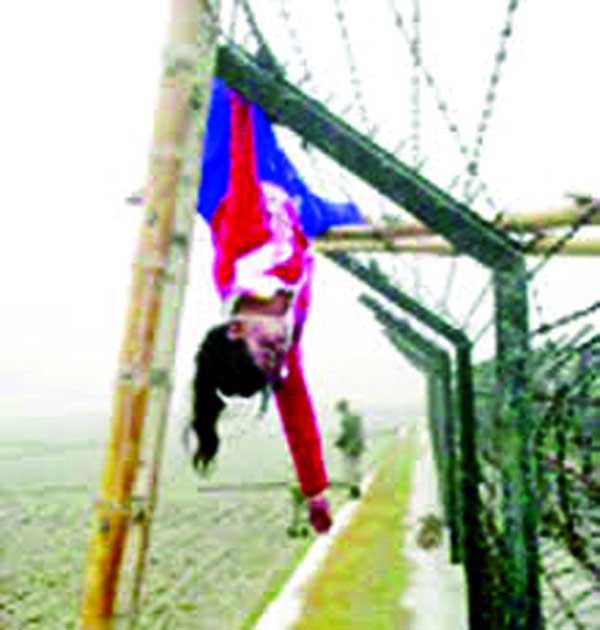
UNB, Kurigram :
The Indian Supreme Court on Thursday gave three weeks to government to submit affidavit in connection with the murder of
Bangladeshi teenager Felani by Indian Border Security Force (BSF).
The Indian apex court gave the time following a time petition of the state after hearing on two writ petitions filed over the murder, said Advocate Abraham Linckon, public prosecutor of Kurigram court.
Felani was killed in gunfire by members of BSF while she was crossing a barbed-wire fence along the Anantapur border in Kurigram district on January 7, 2011.
Felani, who used to work as a domestic help in New Delhi, was returning home from India along with her father.
Although her father managed to cross into Bangladesh by scaling the barbed-wire fence, Felani was shot by the BSF men before she was able to do so.
Photo grabs of Felani’s body, laying upside down on barbwire for five hours on the Indo-Bangla border fencing triggered a global outcry. National, regional and international right bodies asked Indian authorities for taking the perpetuators into book.
The Indian Supreme Court on Thursday gave three weeks to government to submit affidavit in connection with the murder of
Bangladeshi teenager Felani by Indian Border Security Force (BSF).
The Indian apex court gave the time following a time petition of the state after hearing on two writ petitions filed over the murder, said Advocate Abraham Linckon, public prosecutor of Kurigram court.
Felani was killed in gunfire by members of BSF while she was crossing a barbed-wire fence along the Anantapur border in Kurigram district on January 7, 2011.
Felani, who used to work as a domestic help in New Delhi, was returning home from India along with her father.
Although her father managed to cross into Bangladesh by scaling the barbed-wire fence, Felani was shot by the BSF men before she was able to do so.
Photo grabs of Felani’s body, laying upside down on barbwire for five hours on the Indo-Bangla border fencing triggered a global outcry. National, regional and international right bodies asked Indian authorities for taking the perpetuators into book.

